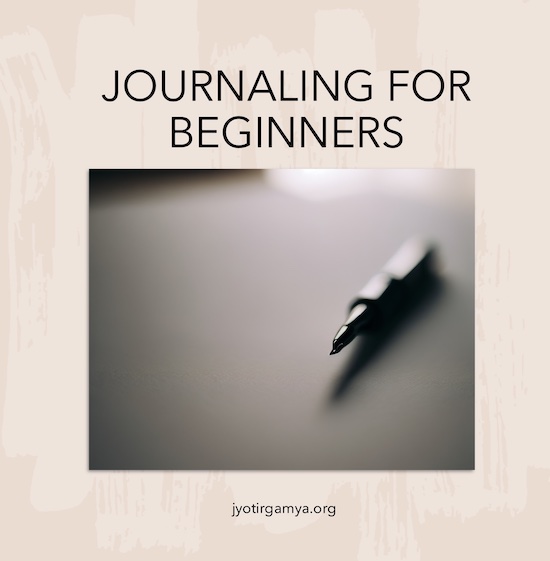Journaling for Beginners: Benefits, Tips, and Expert Insights
Story: Clara the Cat - Another Cog in the Wheel
Once upon a time, a young cat named Clara lived in a bustling town. Clara was different from the other cats in her neighborhood. She had dreams and aspirations beyond the ordinary, but her peers often looked down upon her, considering her ambitions nothing more than silly fantasies.

One day, Clara’s mother, a well-connected and influential cat, overheard some neighborhood cats mocking her daughter. She was deeply offended and determined to prove that Clara had the potential to achieve greatness. So, she used her connections to secure donations and send Clara to the finest schools in town. Clara was allowed to receive the best education and training money could buy.
Clara started spending her days in her chosen profession. She was diligent and obedient, and she always followed the instructions of her superiors. However, as she grew older, Clara began to feel like something was missing. She felt like she was not living her own life. She was simply following the path that others had laid out for her.
One day, Clara started journaling her thoughts and experiences. She had a profound revelation as she poured her heart onto the pages. All the support and influence she had received had stifled her individuality. She had become a mere reflection of others' expectations and desires. Clara’s journal became a mirror that reflected the truth she had long ignored.

She realized her mother’s intentions robbed her of her uniqueness and self-reliance. Clara had lost her ability to think independently and had become a mere follower. She had no original thoughts, no creative spark left within her.
Overwhelmed by remorse and deep regret, Clara wished she had been left to chart her own path, make her own mistakes, and discover her true potential without external interference.
She realized that genuine growth comes from the struggle, the mistakes, and the experiences of finding one’s way. She quit her job and moved to a new forest.
In the forest, she watched the other animals go about their day. She saw a squirrel gathering nuts for the winter, a bird building a nest, and a dog playing fetch with its owner. Clara realized these animals were all living their lives, following their dreams. They were not afraid to take risks or make mistakes.

The animals inspired Clara. She started her own business and followed her passion for art. Clara was finally living her own life, and she was happier than she had ever been.
It is important to be independent and think for yourself; journaling is a great exercise. Don’t be afraid to take risks or make mistakes. These are all part of the journey of self-discovery.
Introduction
Journaling is recording your thoughts, feelings, and experiences in writing. It can be a helpful way to process your emotions, reflect on your life, and set goals. There is no right or wrong way to journal; whatever works best for you is the best way.
In this article, we will explore the benefits of journaling, provide some tips for getting started, and share expert quotes on the topic.

Benefits of Journaling
Journaling has been shown to have several benefits, including:
-
Improved mental health: Journaling can help you to manage stress, anxiety, and depression.
-
Increased self-awareness: Journaling can help you become more aware of your thoughts, feelings, and behavior patterns.
-
Improved problem-solving skills: Journaling can help you to identify problems and develop solutions.
-
Increased creativity: Journaling can help tap into your creativity and imagination.
-
Improved memory: Journaling can help you to remember important events and experiences.
-
Increased goal-setting skills: Journaling can help you to set goals and track your progress.
Tips for Getting Started
If you’re new to journaling, here are a few tips to help you get started:
-
Find a time and place where you will be able to continue.
-
Start by writing for just a few minutes each day.
-
Don’t worry about grammar or spelling.
-
Be honest with yourself.
-
Don’t judge yourself.
-
Experiment with different types of journaling, such as freewriting, stream of consciousness, or gratitude journaling.
Expert Advice
“Your journal is yours alone. There is no right or wrong way to journal; even nonsense leads somewhere. First and foremost, let go of your filter. Be as honest as possible - you’re just being honest with yourself.
Journaling prompts can be helpful. I recommend FANOS - Feelings, Appreciation, Needs, Ownership, and Struggles. It covers all of the key themes that are helpful to stay in touch with - your own emotional experiences, what you appreciate about your partner or job or other aspects of life, the needs you have, what you need to take ownership of; could be something you did that had a negative impact or something upcoming that you need to take responsibility to see through, then, finally, what you’re struggling with right now.
These three questions are a good prompt for planning:
-
Where are you now?
-
Where do you want to go?
-
How are you going to get there?
The only “should” I have for journaling is to keep it unique. Don’t let it be a burden; view it as a helpful resource. If it is too challenging to journal daily, be an ad hoc journalist and don’t worry about it. Reframe thoughts such as “I should journal” to “I would like to journal soon; when can I fit that into my schedule?”
We need to remember why we are starting this to begin with. Once we understand this, the approach is straightforward. We must allow ourselves to create the space to feel focused, accomplished, and goal-directed. We must remember that our stories matter and remain open-minded to accept whatever we need to write or type. People who journal may need prompts, know what inspires them to be creative, permit yourself to feel stuck, and remember it’s your journal rules!
Christina Harrington-Stutzmann
Journaling is not for everyone and is not a one-size-fits-all-all. The one issue to be most concerned about is contemplating, which, unfortunately, can be the downside to journaling- I suggest that patients look for these patterns.
Journaling is a beneficial adjunctive exercise to CBT. I ask all my patients to journal. Journaling shared with the treating psychologist encourages realistic self-analysis and healthy rational thinking and problem-solving about the patient’s irrational beliefs, which, if not disputed, lead to anxiety.
Journaling often documents the events of someone’s life, especially the unprocessed aspects of daily life, be they effective and/or as simple as documenting behavior.
Conclusion
Journaling is a personal and flexible practice that can be beneficial for various reasons. There is no right or wrong way to journal; finding a method that works for you is the most important. You can also try setting aside a specific time each day to journal or journal whenever you need.
Journaling is a journey, not a destination. There will be times when you are consistent with your journaling, and there will be times when you fall off track. The important thing is to keep coming back to it. With time and practice, journaling can become a valuable part of your self-care routine.
Further reading on Journaling
How to Use Journaling for Personal Growth
Unlocking Self-Reflection and Expression: The Transformative Power of Journaling
How to Write your Daily Journal?
If you think someone would benefit from the article, please do share it with them.
Want to stay connected? Here’s our twitter.